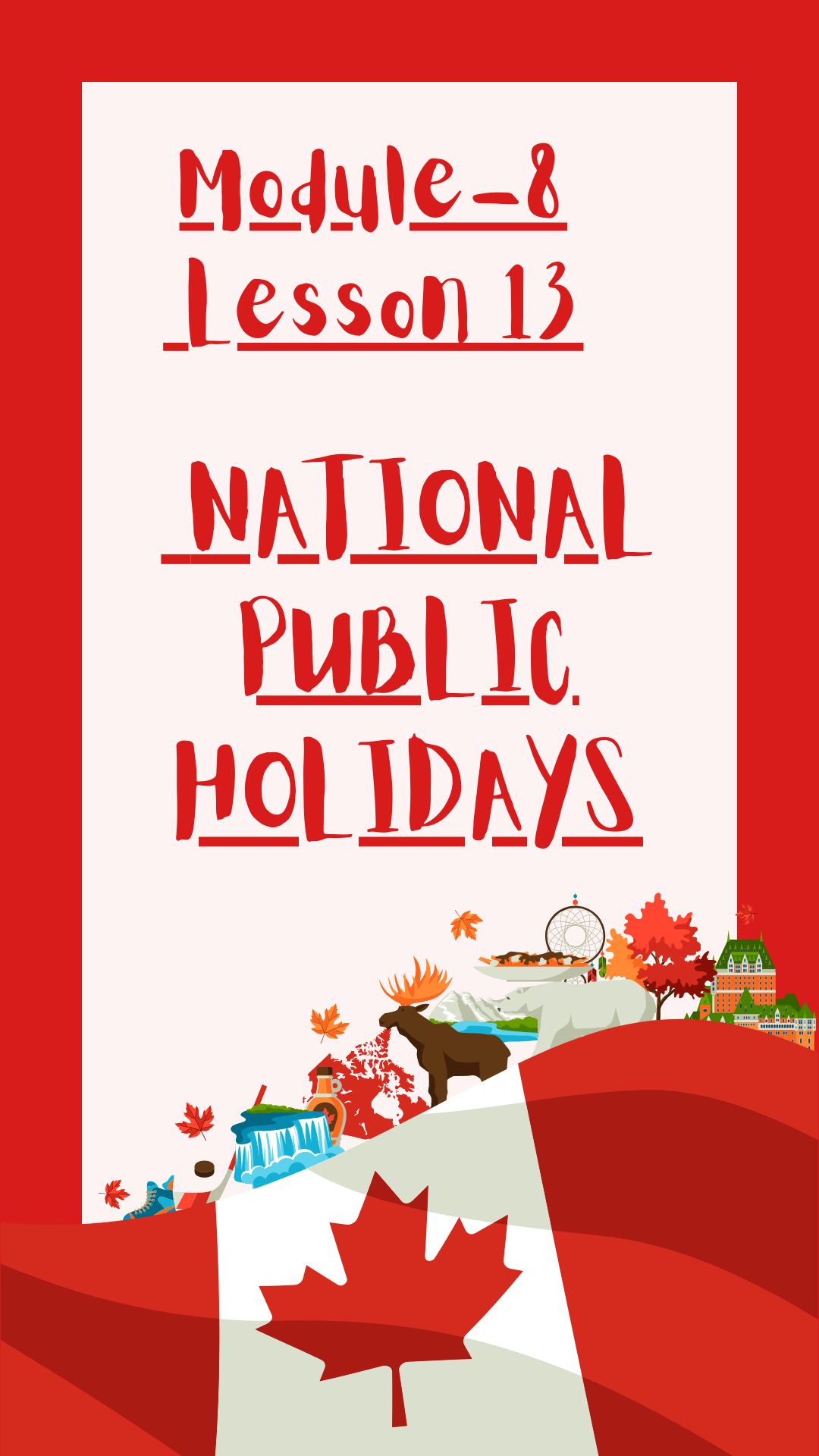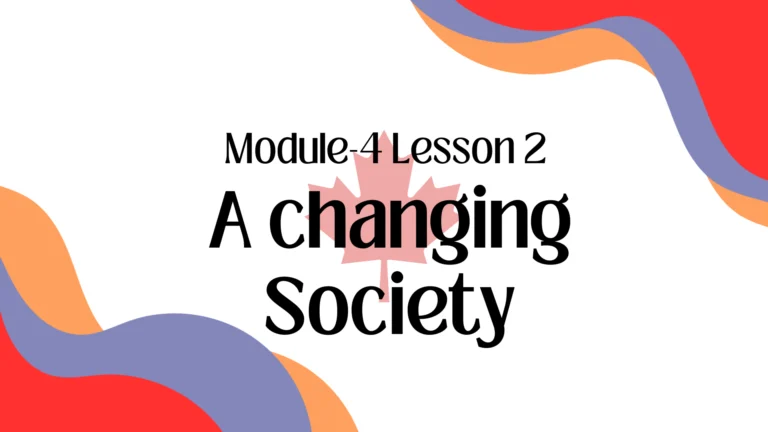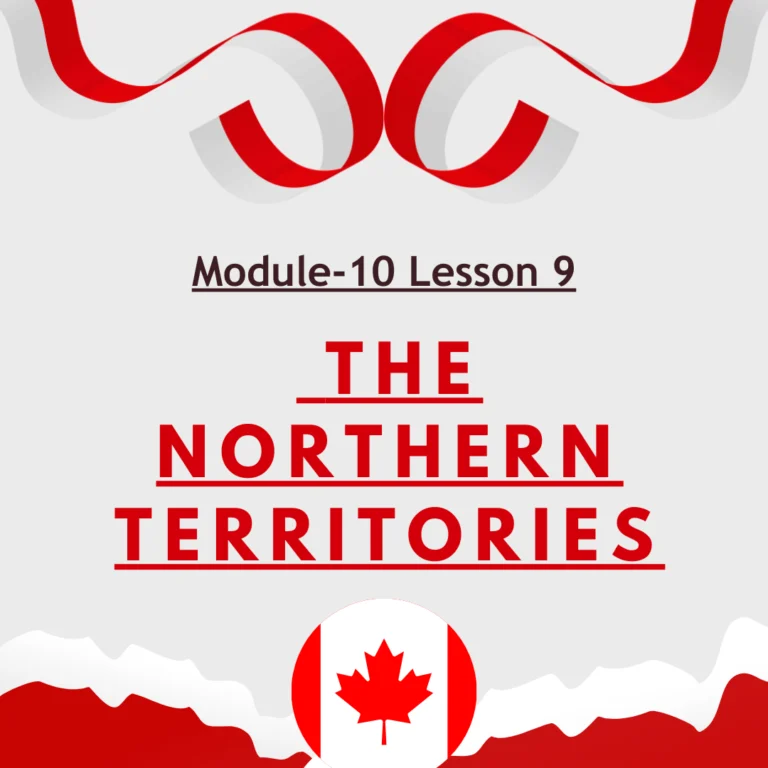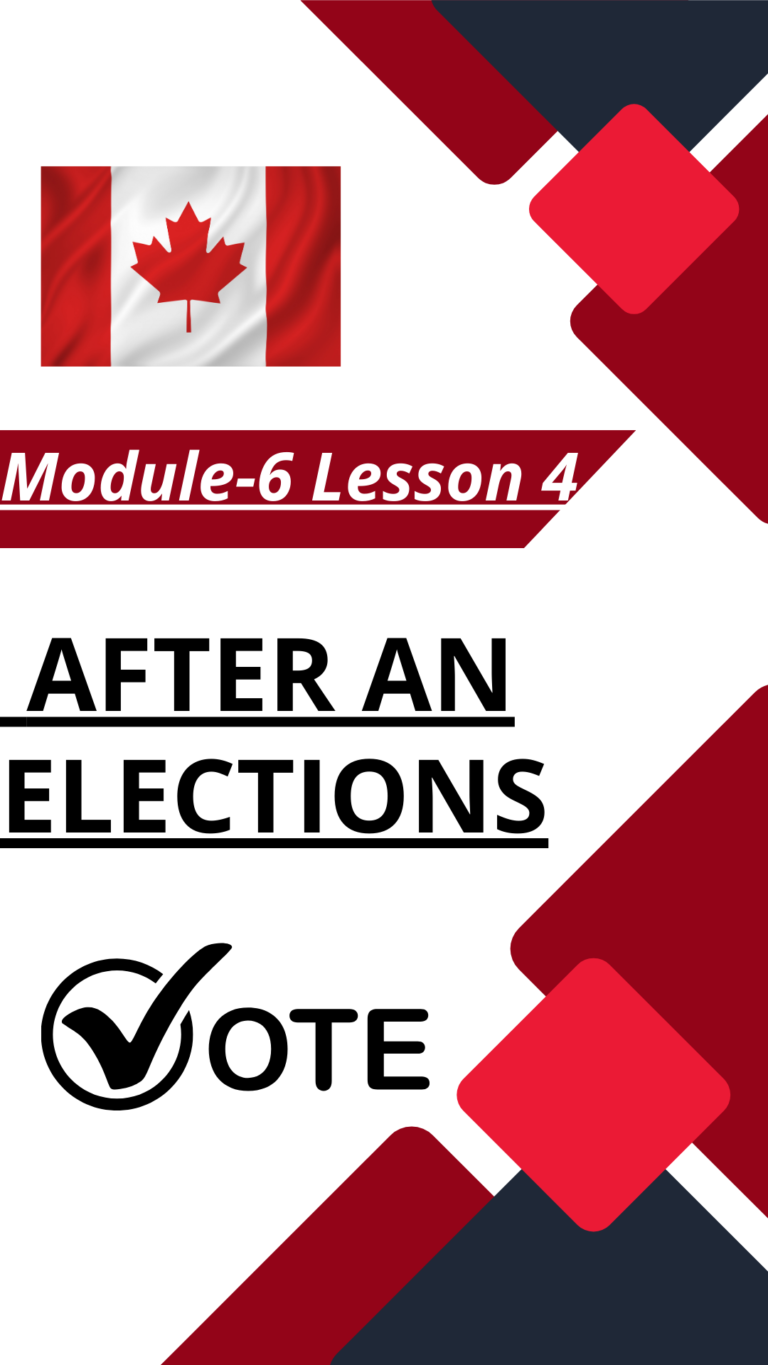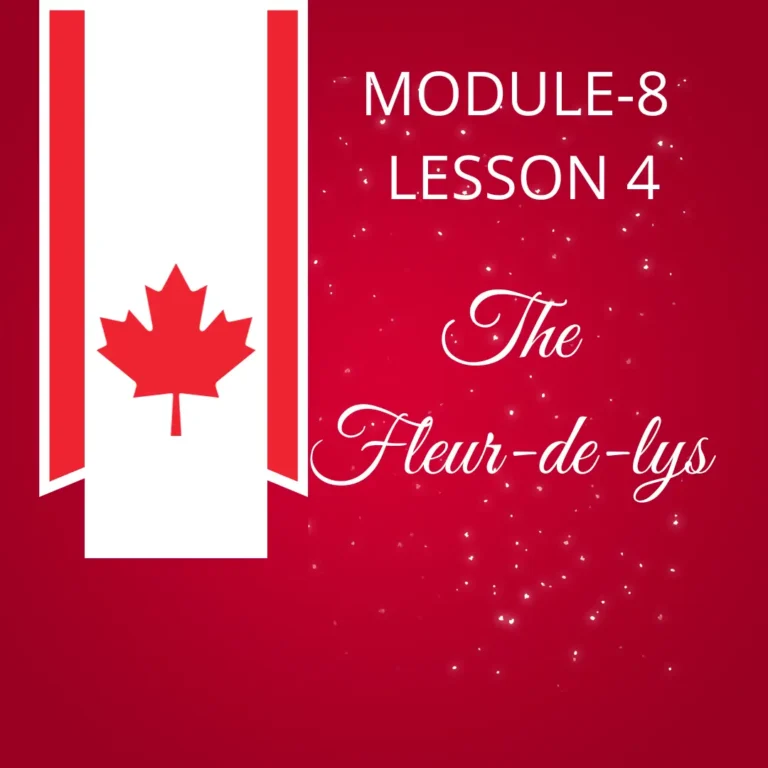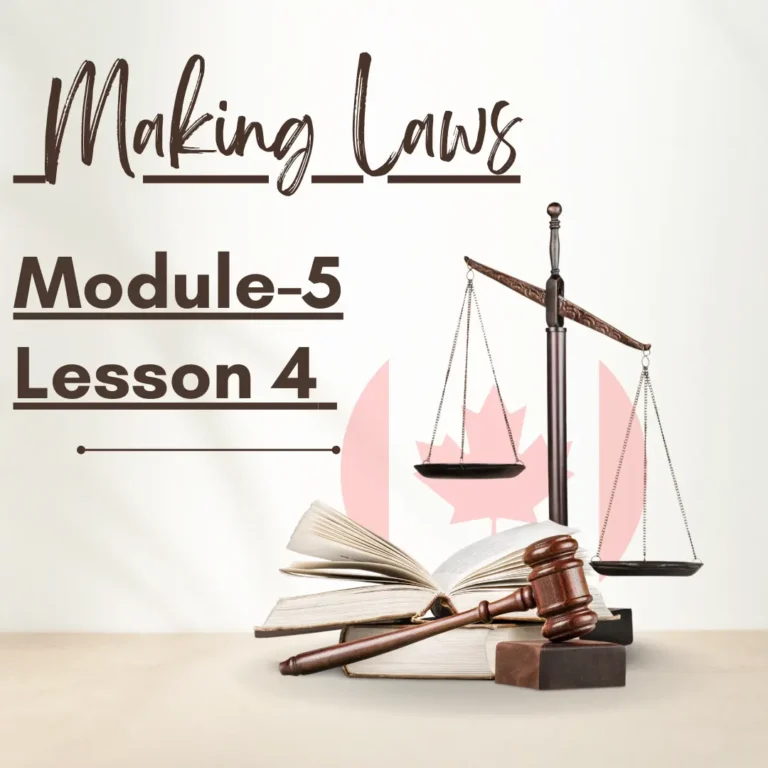Module-8 Lesson 13 National Public Holidays
Canada is a diverse and vast nation that celebrates many national holidays. These public holidays reflect the history, culture, and values of Canada. Canadians can use these holidays to celebrate important events and reflect upon the identity of their country. This exploration of Canadian national holidays explores the origins of the holiday, its cultural significance and the contemporary celebration of this moment that marks the Canadian calendar.
1. New Year’s Day: a Fresh Start
The New Year’s Day celebration on the first of January marks the start of the year. Canadians use this time to say goodbye to the old and embrace the new. Many Canadians use the day to reflect and make resolutions.
Winter sports and a walk in the fresh air are some of the outdoor activities that people enjoy as the new year approaches.
2. Family Day, the third Monday of February: Celebrating family bonds
Family Day, a province-wide holiday celebrated on the third monday of February. Alberta, British Columbia, Manitoba, Ontario and Saskatchewan all celebrate this holiday. Family Day celebrates the value of family and the bonds which bind them.
Canadians spend Family Day with their family doing various things, such as going on outdoor adventures or attending cultural events. They also enjoy spending time together. This is the time when we appreciate family and all that they provide.
3. Good Friday:
Good Friday is observed the Friday prior to Easter Sunday. It’s a Christian celebration that commemorates the Crucifixion. Good Friday has religious meaning, but it is also an official holiday in Canada. It provides a time of reflection and contemplation for Canadians from all walks of life.
Many Canadians celebrate Good Friday by attending religious services or participating in contemplative activities. Others simply take the day off. This is the time to reflect on themes such as sacrifice, forgiveness, and renewal.
4. Easter Monday: Rest Day
Easter Monday is the day after Easter Sunday. It’s a holiday in many provinces including Alberta, British Columbia and Manitoba. Easter Monday is the day that Canadians continue their Easter celebrations, and for many, it’s a chance to have a longer weekend.
Easter Monday, while not being a national holiday, is celebrated in many ways. These include family events, cultural activities and outdoor activities. Businesses and schools might close to allow people more time with loved ones.
5. Victoria Day public holiday:
Victoria Day is celebrated the Monday before May 25 to honor Queen Victoria’s birthday. She played an important role in Canada’s history. It is also a way to pay tribute to Canada’s reigning monarch. Victoria Day is the start of summer in Canada.
Victoria Day is traditionally marked by a variety of events, including parades, fireworks and outdoor celebrations. Canadians take the opportunity of a long weekend to do gardening, BBQs and other outdoor activities.
6. Canada Day: The Birthday of a Nation
Canada Day is celebrated annually on the first of July to mark the anniversary of Canada’s confederation in 1867. Canadians on Canada Day wear red and white in order to show their nationalism. Canada Day celebrations include parades, concerts and cultural events.
Ottawa hosts Canada Day’s largest celebrations and attracts thousands of tourists. Canadians come together to celebrate their diverse cultural heritage and values. Canada Day provides an opportunity for reflection on Canada’s achievements and its principles.
7. Labor Day : Recognition of Workers
Labor Day public holiday is observed on the first Monday of September to celebrate the contributions made by workers. The end of summer is the perfect time to enjoy and relax.
Labour Day is marked by parades, picnics and other community events. This holiday is a celebration of workers’ rights, fair labor practices and the accomplishments of the labor movement.
8. Thanksgiving Public holiday: Harvest and Gratitude
Thanksgiving Day public holiday is celebrated in Canada on the second Sunday of October. It’s a day to show gratitude for all the blessings that have come from the harvest, and for their good fortune over the last year. This Canadian Thanksgiving is similar to that of the American holiday, with family celebrations, meals and thanksgiving.
Canadians enjoy the traditional Thanksgiving meal, which includes turkey, pumpkin pie, and stuffing. Many people also use the occasion to think about the things they’re thankful for and spend time with their loved ones.
9. Remembrance Day: Honouring Veterans
Remembrance Day public holiday is observed annually on 11 November. It’s a time to remember those who served in the military and made sacrifices. It commemorates World War I’s armistice in 1918. Since then, it is celebrated to honor all veterans.
On November 11 at 11:00 am, a minute of silence will be observed in honor of those who lost their life while serving. There are ceremonies held across Canada, such as at the National War Memorial, Ottawa.
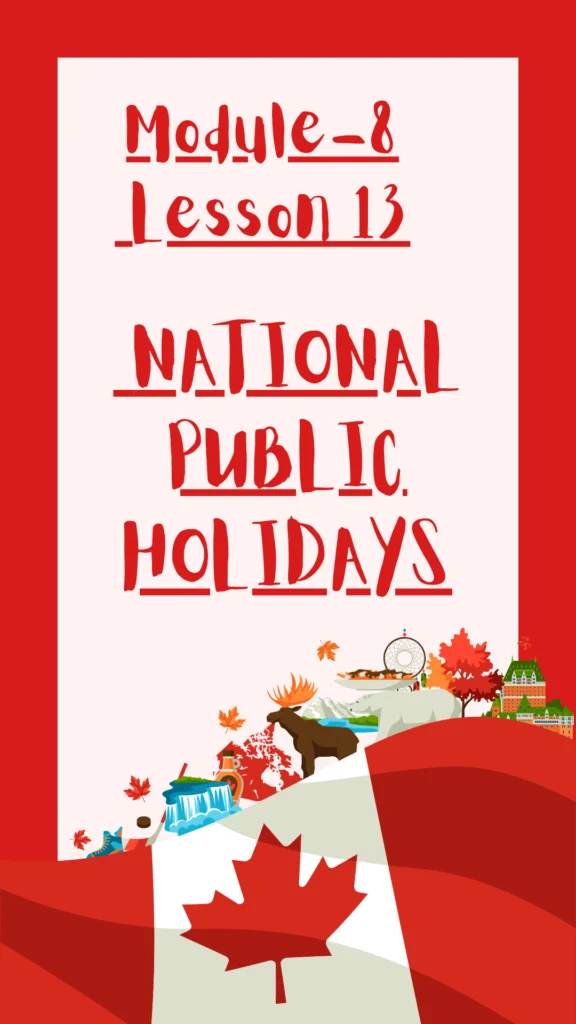
10. Celebrate Christmas Day, December 25th.
Christmas Day public holiday is celebrated every December 25th. It’s a Christian celebration that commemorates the birth of Jesus Christ. Although it is a religious holiday, Christmas in Canada has evolved into a culturally and festive event.
Canadians enjoy a festive meal, exchanging gifts and spending time with their family. Christmas decorations, lights and music add to the festive atmosphere. Many Canadians participate in charity activities over the holiday season to emphasize the spirit of Christmas.

